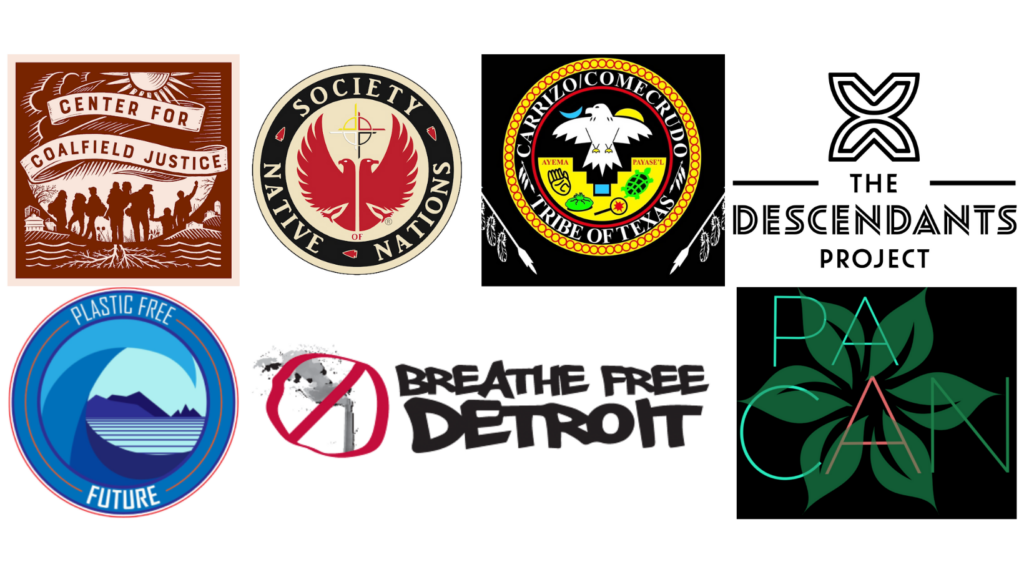
For Immediate Release: Sunday, December 1, 2024
Contact: Sarah Martik, smartik@centerforcoalfieldjustice.org, 724-986-6765 (WhatsApp)
ENVIRONMENTAL JUSTICE COMMUNITIES ABANDONED BY GLOBAL PLASTICS TREATY PROCESS
—
Petro-states and the petrochemical lobby have weaponized well-intended consensus-based decision-making to reverse progress and stifle ambition
Busan, Republic of South Korea – In the final hours of negotiations for the Global Plastics Treaty, member states are set to discuss a new Chair’s text, that, should it be adopted, will not only fail to support environmental justice and Indigenous communities, but will open the door to dangerous and costly false solutions. Despite UNEA Resolution 5/14, which carves out a pathway for “the widest participation possible,” observers experienced flagrant violations of participation. Each iteration of the draft weakened language that is essential to human health and fundamental human rights — a reflection of the petrochemical lobby that is bolstered by petro-states. Still, we saw unprecedented support from over 100 Member States who, for the first time, drew red lines on key issues such as production.
“Without accounting for its full lifecycle, addressing plastic pollution becomes a futile exercise in waste management. The presence of multi-billion dollar, multi-national petrochemical companies and their state minions asserts an undue influence on this treaty, relegating it to nothing more than a thinly veiled attempt to extend the use of fossil fuels, ergo plastics,” says John Beard, CEO and Founder of Port Arthur Community Action Network, based in Port Arthur, Texas.
Observers’ participation in negotiations have been limited throughout the entirety of INC-5, but observers were completely blocked from negotiations for the past 3 days as the Chair conducted “informal meetings” with Member States, which effectively amounted to brokering deals behind closed doors. The landscape for negotiations to deteriorate to this degree was all but set at INC-2, when petro-states blocked all forward progress for two entire days by weaponizing consensus-based decision-making.
“Fenceline community members are here with heavy hearts as we attempt to participate in the UN process while worried sick about our communities at home. Just as our communities are on the frontlines of the problem, dealing with the devastating impact of plastic extraction and production, so should our voices be on the frontlines of the negotiations so that communities like Louisiana’s Cancer Alley can finally heal,” says Jo Banner, Co-Founder and Co-Executive Director of The Descendants Project, based in St. John the Baptist Parish, Louisiana.
As we stare down the real possibility that negotiations will not conclude as scheduled today, it is imperative that we meaningfully address these dynamics that have so far constituted a failed process and led to a potential treaty that would fail our communities. We still have an opportunity to get this right, and the world cannot afford for Member States to let that opportunity pass.
Other members of the Break Free From Plastics Environmental Justice Delegation offer the following statements in reaction to the Chair’s new text and the final scheduled day of INC-5:
“Society of Native Nations expresses our profound disappointment and outrage that the current text of the Global Plastics Treaty shows a complete disregard for Indigenous People’s Rights. Despite our tireless advocacy and the support of numerous member states, the Chair’s text fails to recognize our inherent rights and traditional knowledge, effectively silencing our voices in the fight against plastic pollution. This is a grave injustice. The Chair’s decision to block Rightsholders and observer participation in the final negotiations is a blatant attempt to stifle dissent and pave the way for the influence of the petrochemical industry,” says Frankie Orona, Executive Director of Society of Native Nations.
“The disingenuous and incessant refrains of ‘consensus’ and ‘inclusivity’ from the like-minded petro-states are insulting. They have successfully turned a mechanism designed to ensure that even quieter voices have a say in decision-making into a weapon to be wielded against anyone wanting to fight for impacted communities. The Chair should never have let the process get this close to the point-of-no-return, and I hope he and ambitious Member States will go to bat for the provisions we so badly need to see in the final draft of this treaty. Other multilateral negotiations show us that we can do this in a way that is inclusive but productive, and we need to do so in order to land an effective treaty here and now,” says Sarah Martik, Executive Director of Center for Coalfield Justice.
“All member states should be willing to support provisions for human and Indigenous rights because, unlike other issues, the plastic pollution crisis is causing harm for all people, all countries, and the very planet we count on to live,” says Darryl Jordan, organizer, Breathe Free Detroit.
“The lack of language on human rights and the rights of nature in the treaty will have a catastrophic effect on people and the planet, disproportionately affecting the most vulnerable and further contributing to biodiversity loss. Furthermore, excluding language around the importance of prioritizing non-toxic reuse and traditional zero waste systems will pave the way for the expansion of regrettable substitutions, perpetuating inequities while missing the opportunity to transition to a truly equitable and regenerative circular economy.” says Alejandra Warren, Founder and Executive Director of Plastic Free Future, based in California.
“No colonizer language can define my existence or erase me from my existence. The continual verbiage of this treaty subjects us to the colonized ideals of ‘out of sight out of mind.’ And I will not be denied my humanization by those who are no longer human, but caught up in the toxicity of petrol and plastics,” says Juan Mancias, Chairman of the Carrizo Comecrudo Tribe of Texas
###
